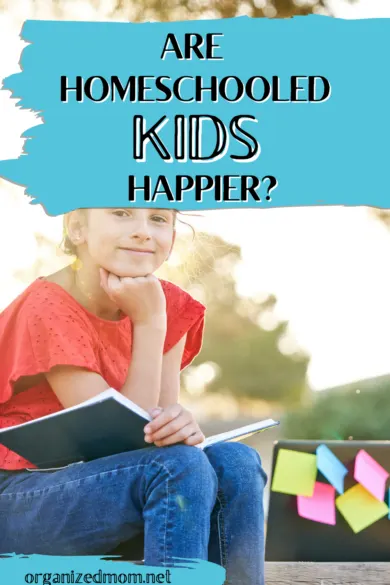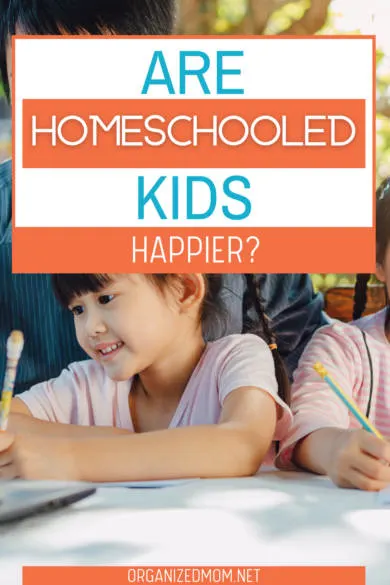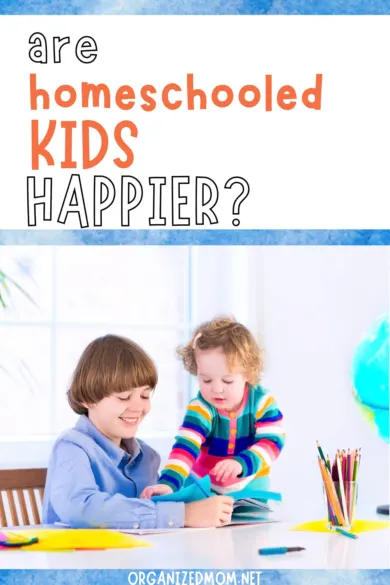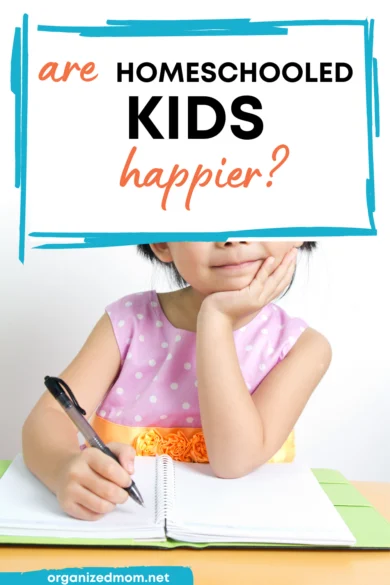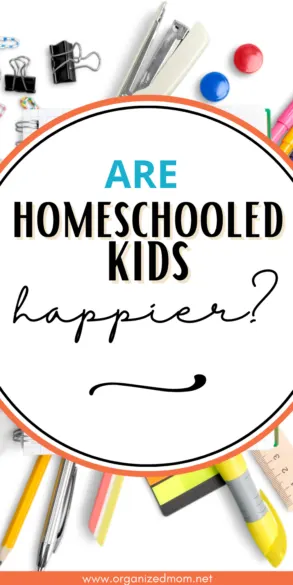The traditional school system has failed millions of students, and after a long, hard look at the system, parents saw that their children could be effectively educated in the comfort of their own homes. Are homeschooled kids happier?
Homeschooled kids are happier, as homeschooling takes away what public schooling provides. Homeschoolers have no peer pressure, undergo no bullying, no volatile environments, and no stressful testing requirements. Homeschooling also allows each learner to follow methods that suit them specifically.
Homeschooling has become a very popular alternative to the school system as we know it, and it’s legal in most countries. Are you wondering if homeschooled kids are happier and why it could make all the difference in a kid’s life? Continue reading to find out!
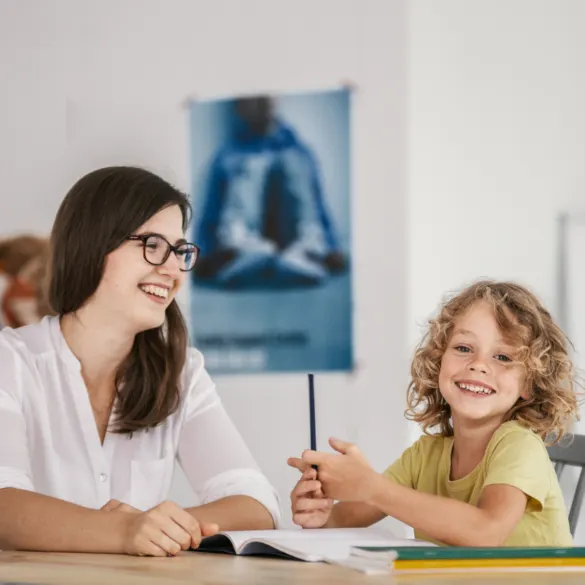
Are Homeschooled Children Happier?
According to statistics, 90% of graduated homeschoolers are happy about being homeschooled, and 66.7% of these homeschoolers end up graduating college.
In contrast to many beliefs, homeschoolers not only fare better in terms of socialization than public schoolers but also do better in their tests and exams.
This makes homeschooled children happier in general, as they are allowed to socialize with others of the same age, with the same interests, and the same beliefs, leading to a more fulfilling and happier social life.
In addition, where public and private schools allocate certain times to certain subjects, homeschooled children, with the supervision of their parents, can make their own schedules, take breaks when they feel they need to and have more freedom to work on their creative and stronger skills.
Why Are Homeschooled Kids Happier?
There are several benefits of homeschooling your kids as opposed to public schooling. Homeschooling provides aspects of the education system and much more that public schools cannot provide.
Let’s take a look at why homeschooled kids are happier:
Homeschooling Allows For Flexible Schedules
When you take rushing every morning and having to meet strict schedules, meetings, and other commitments out of your daily schedule, you’d be surprised at how much freedom a homeschooled child will have.
Not only can the parent decide on the length of lessons and when to take holidays, but many homeschooled kids have the advantage of enjoying educational breaks during the off-seasons of the year.
There are endless opportunities for museum visits, field trips, and more, which can work perfectly with what they are learning in their lessons at that time.
This flexibility allows more freedom to explore and realize a child’s passions earlier in life, meaning they will live a happier and more fulfilling life.
Homeschooled Kids Have Emotional Freedom
Getting an education from home will remove a lot of stress a normal classroom could cause on a child’s emotional well-being.
Homeschooling removes the need to give in to peer pressure to drink alcohol, do drugs, or fit into specific social groups and structures and become victims of bullying.
Most homeschoolers have healthy self-esteem, which will result in them becoming more emotionally stable, mature, and happier adults.
Homeschooling Teaches Lessons Applicable To The Real World
More and more public school children fall behind after high school, becoming a real problem. Homeschooling resolves this growing issue, as real-world lessons, such as budgeting, can be incorporated into a child’s daily academics.
A homeschooled child can learn everything and more when homeschooled, preparing them for life after high school. This results in more mature, happier adults that would be much happier and prepared to step into the real world.
Homeschooled Learners Can Learn At Their Own Pace
The public school system pressures many children to learn at a fast pace, which could become extremely overwhelming, and have the opposite effect. Many children fail to learn as fast as others, which means they will fall behind without getting an opportunity to catch up.
Many children become so behind that they fail an academic year or drop out of school entirely. Homeschooled children can learn in an intellectually dependent way, whereas public schoolers are often too dependent on teachers.
Additionally, homeschooling can cater to a child’s specific or special needs. A child with special needs may become labeled and treated unfairly in the public school system.
This causes ADHD children to not only fall behind but cause them to be seen as a hindrance. If special needs children are homeschooled privately, their special needs will always be considered, and they will always be a priority, instead of becoming lost between a large class.
Homeschooling Allows Children To Be Responsible
Homeschooled children learn to accept responsibility for their own education, whereas public school children often blame their educators for not educating them.
A homeschooled learner will know what is expected of them and know they are held accountable for their education.
Homeschooling Allows For Extracurricular Activities
Often, public schools have limited activities that may not apply to each learner. While children may be able to practice some instruments and sports, not all types are available, resulting in children withdrawing from these activities entirely.
When it comes to homeschooling, children have the freedom to choose extracurricular activities that will fulfill their needs and make them happier and more interested in general.

Homeschooling Removes The Need For Homework
Because homeschooled children are much more involved in their own education process, there is little to no homework to be done. Most kids are tired after having a full day at school, which could make them too tired to do extra schoolwork at home.
Parents never have to undergo the struggles to help with lengthy and impossible homework, which could result in children becoming frustrated and uninterested. Homework could become incorporated into lessons, tasks, and field trips.
Conclusion
While it’s possible to have a fulfilling experience in public schools and education, it has become much more common for kids to come out unhappy and depressed. While there are endless benefits to homeschooling, it becomes a personal decision that needs to consider the specific child and parents who will have to supervise them and help with the learning process.
